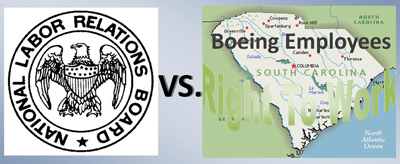Obama Bureaucrats Bolster Monopolistic Unionism
Labor Board Chipping Away at 'Choice to Remain Unrepresented' Craig Becker has publicly lamented the fact that U.S. labor law does not "mandate" union monopoly bargaining. Credit: www.uncoverage.net (Source: November-December 2011 National Right to Work Committee Newsletter) In his writings for academic and "labor studies" journals over the years, union lawyer Craig Becker has repeatedly bemoaned the fact that U.S. labor law "does not," as he once bluntly explained, "require employees in a plant to select a bargaining agent, if they do not want to." Employees' only choice, Mr. Becker has suggested time and again, should be over which set of union officials get "exclusive" (monopoly) bargaining power to negotiate their wages, benefits, and work rules. Thanks to President Barack Obama, Mr. Becker is in a position as 2011 winds down to begin implementing his extremist vision of what federal labor policy should be. In March 2010, Mr. Obama did the bidding of the union hierarchy by "recess" appointing Mr. Becker to the powerful National Labor Relations Board (NLRB). Mr. Becker and Chairman Mark Pearce, another ex-union lawyer installed on the NLRB by Mr. Obama, now constitute a radical Big Labor majority on a rump, three-member NLRB. (Two of the board's five seats are currently vacant.) And late this November Mr. Pearce and Mr. Becker okayed changes to the current procedures for NLRB certification of unions that will, in practice, significantly undermine workers' right to choose against monopolistic union representation. The Obama NLRB originally planned to go even further to gut workers' "choice to remain unrepresented" -- a choice Mr. Becker has indicated he doesn't think should be legally protected at all. But intense public opposition, mobilized by the National Right to Work Committee and other allied groups, evidently influenced the NLRB to temper its haste somewhat. Employers May Soon Be Forced To Hand Employee Phone Numbers, E-Mail Addresses to Union Dons






